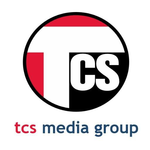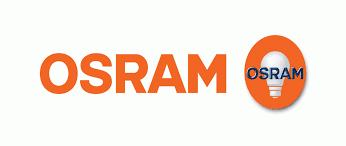Description

GridPoint

TCS CRM
Comprehensive Overview: GridPoint vs TCS CRM
GridPoint and TCS CRM Overview
a) Primary Functions and Target Markets
GridPoint:
-
Primary Functions:
- Energy Management Solutions: GridPoint provides energy management systems (EMS) aimed at optimizing energy efficiency, reducing waste, and lowering costs.
- Data Analytics: Offers predictive analytics to track energy consumption patterns and identify opportunities for savings.
- Automated Controls: Enables automation of energy controls for HVAC, lighting, and other systems.
- Sustainability Reporting: Facilitates sustainability tracking and reporting to meet regulatory and corporate sustainability goals.
-
Target Markets:
- Primarily targets commercial and industrial sectors, including retail chains, restaurants, and corporate campuses.
- Utilities, government entities, and energy service companies also form part of its market.
TCS CRM:
-
Primary Functions:
- Customer Relationship Management: Manages customer relationships with features such as lead management, contact management, and sales forecasting.
- Sales and Marketing Automation: Tools for automating marketing campaigns and sales processes to improve efficiency.
- Service Management: Offers modules for field service management, customer support, and ticketing.
- Analytics and Reporting: Provides analytics for understanding customer behavior and enhancing customer experience.
-
Target Markets:
- Large enterprises across various industries such as banking and financial services, telecommunications, retail, and manufacturing.
- Also caters to mid-sized enterprises looking for comprehensive CRM solutions.
b) Market Share and User Base
Comparing GridPoint and TCS CRM in terms of market share and user base involves considering their presence in their respective domains:
-
GridPoint:
- As of the latest data, GridPoint holds a niche position within the energy management software market. It's not as widely spread as some of the larger providers but is recognized for its specialized solutions tailored to commercial energy users.
- Its user base is relatively smaller compared to the CRM market due to its niche focus.
-
TCS CRM:
- TCS CRM, part of Tata Consultancy Services, benefits from the extensive reach and reputation of TCS as a global IT service provider.
- TCS CRM is recognized among enterprise-level competitors in the CRM market, though it may not have the same market share as leading CRM platforms like Salesforce or Microsoft Dynamics.
- TCS CRM serves a diverse and substantial user base, particularly among large organizations and TCS’s existing clientele.
c) Key Differentiating Factors
GridPoint vs. TCS CRM:
-
Focus and Domain:
- GridPoint is specifically focused on energy management and sustainability, providing solutions that are specialized for optimizing energy consumption and cutting costs in commercial settings.
- TCS CRM is broadly focused on enhancing customer relationship management and integrates sales, marketing, and service management functions.
-
Technology and Integration:
- GridPoint leverages IoT and smart building technology to provide real-time energy monitoring and control, crucial for businesses looking to improve energy efficiency.
- TCS CRM emphasizes integration with existing enterprise systems and provides scalability and customization options for diverse industries.
-
Market Strategy:
- GridPoint is often chosen by organizations with a direct need for energy cost management and sustainability compliance.
- TCS CRM, leveraging TCS's broader IT service ecosystem, can offer a comprehensive solution that integrates well with other TCS offerings, making it attractive to large enterprises seeking CRM solutions as part of broader digital transformation initiatives.
GridPoint and TCS CRM operate in different domains with distinct market needs—energy management and customer relationship management, respectively—each offering specialized solutions tailored to their audience's specific requirements.
Contact Info

Year founded :
2003
+1 703-667-7000
Not Available
United States
http://www.linkedin.com/company/gridpoint

Year founded :
Not Available
Not Available
Not Available
Not Available
Not Available
Feature Similarity Breakdown: GridPoint, TCS CRM
GridPoint and TCS CRM are quite different in their primary functions, as GridPoint focuses on energy management and optimization, while TCS CRM is a customer relationship management platform. However, if we consider them from the perspective of software platforms that cater to business needs, we can draw some parallels and distinctions in their features:
a) Core Features in Common:
-
Data Analytics & Reporting:
- Both platforms provide robust data analytics capabilities. GridPoint focuses on energy consumption data, while TCS CRM emphasizes customer interaction and sales data.
- Reporting tools are key in both, enabling users to generate insights crucial for decision-making.
-
Integration Capabilities:
- Each product supports integration with other systems. GridPoint often integrates with hardware and building management systems, while TCS CRM usually integrates with sales, marketing, and service platforms.
-
Cloud-based Solutions:
- Both offer cloud-based services, facilitating scalability, remote access, and regular updates without hardware dependencies.
b) User Interface Comparison:
-
GridPoint:
- The UI is geared towards facility managers and energy analysts. It often includes dashboards that visualize energy consumption, cost savings, and system alerts in real-time. The interface is typically oriented towards technical users who need to manage complex data sets.
-
TCS CRM:
- The user interface is designed for sales, marketing, and customer service professionals. It emphasizes ease of use with customizable dashboards, drag-and-drop features, and user-friendly navigation to facilitate managing customer relations, sales pipelines, and service requests.
c) Unique Features:
-
GridPoint:
- Energy Optimization Algorithms: Proprietary algorithms to optimize energy consumption across facilities, reducing costs, and enhancing sustainability efforts.
- Predictive Maintenance: Tools to predict energy system failures before they occur, allowing for proactive maintenance.
-
TCS CRM:
- Customer Engagement Tools: Features like social listening and personalized marketing campaigns help engage customers effectively across different channels.
- Sales Automation: Advanced automation for sales workflows that include lead scoring, auto-generated follow-ups, and pipeline management.
In summary, while both GridPoint and TCS CRM offer powerful data analysis and integration capabilities, their core functionalities are distinct, as they cater to different sectors. GridPoint stands out with its advanced energy management features, whereas TCS CRM differentiates itself with robust customer management and sales automation capabilities.
Features

Energy Management
Operational Efficiency
Sustainability Goals

Customer Management
Sales Management
Marketing Automation
Customer Support
Analytics and Reporting
Best Fit Use Cases: GridPoint, TCS CRM
To determine the best fit use cases for GridPoint and TCS CRM, it's important to understand the strengths and primary applications of each:
GridPoint
a) For what types of businesses or projects is GridPoint the best choice?
GridPoint is an energy management and sustainability platform, making it ideal for businesses and projects focused on energy efficiency, environmental responsibility, and cost savings related to energy use. It's particularly well-suited for:
- Retail Chains and Commercial Buildings: Businesses with multiple locations benefit from centralized energy monitoring and management.
- Manufacturing Facilities: Companies looking to optimize energy usage and reduce operational costs can leverage GridPoint's insights.
- Utility Companies: Providers looking to implement demand response programs or improve grid stability benefit from GridPoint’s capabilities.
- Institutions and Campuses: Universities and large institutions managing multiple buildings can use GridPoint to enhance sustainability efforts.
TCS CRM
b) In what scenarios would TCS CRM be the preferred option?
TCS CRM (Customer Relationship Management) solutions are tailored for businesses aiming to improve customer interaction, streamline sales processes, and enhance marketing efforts. It is best suited for:
- Large Enterprises: Companies with extensive customer bases and complex sales cycles benefit from TCS CRM's scalability and integration capabilities.
- Financial Institutions: Banks and insurance firms require robust customer data management, which is a key offering of TCS CRM.
- Telecommunications Companies: Carriers needing to manage vast customer data and deliver personalized services find TCS CRM valuable.
- Retail and Consumer Goods: Businesses focused on personalized marketing and customer loyalty can leverage TCS CRM's tools.
Catering to Different Industry Verticals or Company Sizes
d) How do these products cater to different industry verticals or company sizes?
-
GridPoint:
- Industry Verticals: GridPoint caters primarily to energy-intensive industries and sectors where operational efficiency is critical. Its solutions are particularly advantageous for retail, manufacturing, and utilities sectors.
- Company Size: While GridPoint can serve businesses of various sizes, it is especially beneficial for mid-sized to large enterprises that have complex energy usage patterns across multiple facilities.
-
TCS CRM:
- Industry Verticals: TCS CRM serves diverse industries, including finance, telecommunications, retail, and beyond, by providing tailored solutions to manage and analyze customer interactions across channels.
- Company Size: TCS CRM is designed to scale, making it suitable for both medium-sized businesses looking to grow and large enterprises that require intricate customer relationship management across various departments.
In summary, GridPoint is ideal for companies seeking to improve energy management and sustainability, while TCS CRM is best for businesses focusing on strengthening customer relationships and enhancing sales and marketing strategies. Both tools are adaptable to various industry requirements but focus on different aspects of operational efficiency.
Pricing

Pricing Not Available

Pricing Not Available
Metrics History
Metrics History
Comparing teamSize across companies
Conclusion & Final Verdict: GridPoint vs TCS CRM
To provide a conclusion and final verdict for GridPoint and TCS CRM, it's essential to evaluate them based on several key factors like functionality, cost, user experience, integration capabilities, and customer support.
GridPoint vs. TCS CRM: Best Overall Value
Best Overall Value: The best overall value between GridPoint and TCS CRM largely depends on the specific needs and context of the user. However, if we generalize:
-
GridPoint might offer better value for organizations looking for robust energy management and optimization solutions. It’s particularly advantageous for businesses focused on sustainability, energy efficiency, and reducing operational costs related to energy consumption.
-
TCS CRM could be the preferred choice for businesses looking for comprehensive CRM solutions that enhance customer interactions, manage sales pipelines effectively, and offer large-scale integration capabilities with other enterprise systems. TCS CRM can be an excellent value for enterprises seeking a customizable CRM with deep technological support.
Pros and Cons of Each Product
GridPoint:
-
Pros:
- Excellent for energy management and sustainability initiatives.
- Supports data-driven decision-making with advanced analytics.
- Potential to significantly reduce energy costs.
- Can improve operational efficiency by providing real-time insights.
-
Cons:
- May require significant initial setup and investment.
- Best suited for companies where energy management is a core component.
- May not address non-energy management organizational needs.
TCS CRM:
-
Pros:
- Comprehensive CRM functionalities with customizability.
- Strong integration capabilities with existing IT infrastructure.
- Enhances customer engagement and sales process efficiency.
- Provides robust analytics for customer insights and business strategy.
-
Cons:
- Can be overwhelming for small businesses due to its extensive features.
- Customizations and integrations may require technical expertise and additional costs.
- May be overkill for organizations not heavily invested in CRM processes.
Recommendations for Users Deciding Between GridPoint and TCS CRM
-
Assess Core Needs:
- If your primary goal is energy efficiency and sustainability, GridPoint is more suited to your needs.
- If customer relationship management and sales optimization are your main focus, TCS CRM provides the tools you need.
-
Consider Scalability:
- Both GridPoint and TCS CRM offer scalability, but consider your future needs and plans for expansion to ensure long-term value.
-
Evaluate Integration Requirements:
- Consider how each solution will integrate with your existing systems. GridPoint will likely need to integrate with building management systems, while TCS CRM may need to connect with various enterprise software and databases.
-
Analyze Cost vs. Benefits:
- Conduct a detailed cost-benefit analysis considering initial investment, potential savings, and long-term gains.
-
Seek User Feedback:
- Look for case studies, testimonials, or referrals from similar businesses that have implemented each solution.
In conclusion, the decision between GridPoint and TCS CRM largely depends on the specific priorities of the organization. Understanding the unique needs and goals, as well as thoroughly weighing the pros and cons, will lead to the best overall decision for value.
Add to compare
Add similar companies



